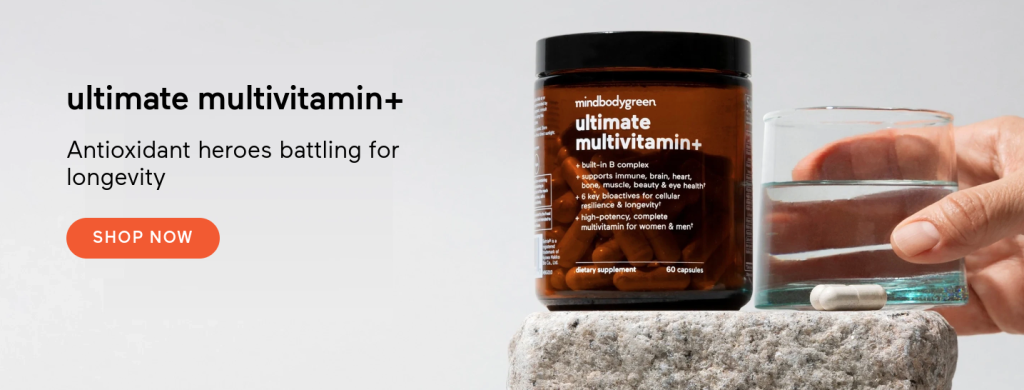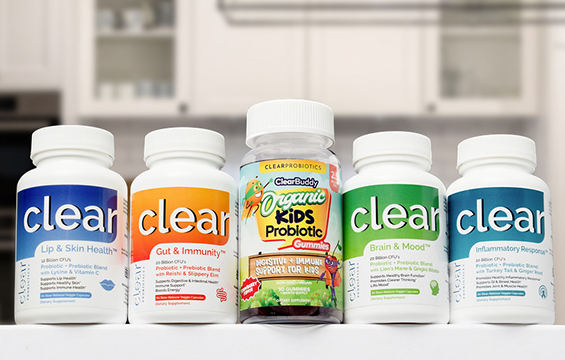Table of Contents
ToggleThe vaginal microbiome is a complex ecosystem that plays a crucial role in vaginal health. Lactobacilli, the dominant microorganisms in a healthy vagina, help create an acidic environment that inhibits the growth of harmful pathogens and promotes balance in the microbiome.
However, an imbalance in the vaginal microbiome, characterized by a reduced abundance of lactobacilli, can lead to various vaginal infections.
Probiotic lactobacilli have gained recognition as an effective alternative or adjunct to traditional antibiotic therapy for treating vaginal infections and restoring the vaginal microbiome.
Key Takeaways:
- Discharge and probiotics are closely related to maintaining a healthy vaginal microbiome.
- Lactobacilli are the dominant microorganisms in a healthy vagina and help create a balanced environment.
- An imbalance in the vaginal microbiome can lead to vaginal infections.
- Probiotic lactobacilli can be used to treat vaginal infections and restore the vaginal microbiome.
- Hormonal changes, pregnancy, menopause, and contraceptive methods can affect the vaginal microbiome.

Understanding the Vaginal Microbiome and Its Importance
The dominant microorganisms in a healthy vagina are lactobacilli, which contribute to the acidification of the vaginal environment.
This acidity inhibits the growth of harmful pathogens and promotes a balanced vaginal microbiome.
It is important to understand that the vaginal microbiome is not just a passive collection of bacteria, but rather a dynamic and intricate system that requires a delicate balance to function optimally.
Several factors influence the composition of the vaginal microbiome, including hormonal changes during puberty, pregnancy, and menopause, as well as the use of contraceptive methods.
Hormonal contraceptives and intrauterine devices can disrupt the vaginal microbiome, increasing the risk of infection.
During pregnancy, the rising estrogen levels promote the growth of lactobacilli, ensuring a stable vaginal microbiome.
In contrast, the postmenopausal phase, characterized by decreased estrogen levels, leads to changes in the vaginal microbiome.
When an imbalance in the vaginal microbiome occurs, characterized by a reduced abundance of lactobacilli, various vaginal infections can arise.
Bacterial vaginosis, vulvovaginal candidiasis, and sexually transmitted infections are examples of conditions that can result from an imbalanced vaginal microbiome.
To address these infections and restore balance, probiotic lactobacilli have been widely used as an alternative or adjunct to traditional antibiotic therapy.
Studies have shown that probiotic lactobacilli can restore the vaginal microbiome through mechanisms such as co-aggregation with pathogens, production of defense metabolites, competitive adhesion, and immunomodulatory effects.
The Link Between Imbalance and Infections
An imbalance in the vaginal microbiome, marked by a decrease in lactobacilli, can result in a range of vaginal infections, including bacterial vaginosis, vulvovaginal candidiasis, and sexually transmitted diseases.
Disruption in vaginal microorganisms’ balance lets harmful pathogens overgrow, causing infection.
Bacterial vaginosis (BV)
One of the most common vaginal infections and is characterized by an overgrowth of harmful bacteria, such as Gardnerella vaginalis.
It often presents with symptoms like abnormal vaginal discharge, unpleasant odor, and itching. BV can increase the risk of complications during pregnancy, pelvic inflammatory disease, and sexually transmitted infections.
Vulvovaginal candidiasis
Commonly known as a yeast infection, is caused by an overgrowth of Candida species, particularly Candida albicans.
It can cause symptoms such as itching, a thick white discharge, and irritation. Yeast infections are generally not considered sexually transmitted infections, but they can be recurrent and bothersome.
Sexually transmitted infections (STIs)
Infections such as chlamydia, gonorrhea, trichomoniasis, and herpes can also affect the vaginal microbiome.
These infections can lead to symptoms like itching, burning, abnormal discharge, and pain during sexual intercourse. STIs can have serious health consequences if left untreated, including infertility and increased risk of HIV transmission.
| Vaginal Infection | Cause | Symptoms |
|---|---|---|
| Bacterial vaginosis (BV) | Overgrowth of harmful bacteria like Gardnerella vaginalis | Abnormal discharge, unpleasant odor, itching |
| Vulvovaginal candidiasis | Overgrowth of Candida species, particularly Candida albicans | Itching, thick white discharge, irritation |
| Sexually transmitted infections (STIs) | Various pathogens, including chlamydia, gonorrhea, trichomoniasis, and herpes | Itching, burning, abnormal discharge, pain during intercourse |
Prevention and Treatment
Probiotics can help restore the natural balance of microorganisms in the vagina, inhibit the growth of harmful pathogens, and promote a healthy vaginal environment.
Probiotic supplements, containing different strains of lactobacilli, are available over the counter and can be used as an adjunct therapy for the treatment of vaginal infections.
These supplements can be taken orally or inserted directly into the vagina.
Studies have shown that probiotic lactobacilli can effectively restore the vaginal microbiome and reduce the recurrence of bacterial vaginosis and vulvovaginal candidiasis.
In addition to probiotics, practicing good hygiene, avoiding douching, using condoms during sexual intercourse, and maintaining a healthy lifestyle can all contribute to the prevention and management of vaginal infections.
It is important to consult with a healthcare professional for an accurate diagnosis and appropriate treatment.

Probiotics as a Solution for Vaginal Infections
Probiotics offer several benefits over traditional antibiotic therapy. These beneficial bacteria can help rebalance the vaginal ecosystem, promoting a healthy microbiome and reducing the risk of recurrent infections.
Studies have shown that probiotic lactobacilli can restore the vaginal microbiome through various mechanisms.
One such mechanism is co-aggregation, where probiotics bind to harmful pathogens, preventing their adherence to the vaginal wall and subsequent colonization.
Probiotics also produce defense metabolites, such as lactic acid and hydrogen peroxide, which create an acidic environment that inhibits the growth of harmful bacteria and fungi.
In addition, probiotic lactobacilli have a competitive adhesion effect, meaning they can outcompete pathogens for binding sites on the vaginal epithelial cells. This further helps in reducing the colonization of harmful organisms.
Furthermore, probiotics can modulate the immune response in the vaginal mucosa, strengthening the body’s defense mechanisms against infections.
The Benefits of Probiotic Supplements
- Clinical Trial Outcomes: Clinical studies prove that many women experience relief after starting a probiotic regimen.
- Restores Microbiome: Probiotics rebalance the vaginal microbiome, creating a supportive environment for beneficial bacteria.
- Inhibits Pathogens: Probiotics compete with and inhibit harmful bacteria and fungi, making it difficult for these pathogens to cause infections.
- Reduces Infection Risk: Regular intake significantly reduces the risk of recurrent vaginal infections.
- Alleviates Symptoms: Probiotics directly address and reduce symptoms like discharge, itching, and odor.
- Boosts Overall Health: These supplements improve the overall health of the vaginal environment, potentially aiding fertility and lessening menstrual discomfort.
Factors Affecting the Vaginal Microbiome
The composition of the vaginal microbiome can undergo significant changes during different stages of a woman’s life, influenced by factors like hormonal changes during puberty, pregnancy, menopause, and the use of contraceptive methods.
During puberty, hormonal changes trigger the development of secondary sexual characteristics and the maturation of the reproductive system.
These changes can also impact the vaginal microbiome, with a decrease in the abundance of lactobacilli and an increase in other bacteria. This shift in microbial balance can make young girls more susceptible to vaginal infections.
Pregnancy is another phase that can significantly affect the vaginal microbiome. Rising estrogen levels during pregnancy promote the growth of lactobacilli and help maintain a stable vaginal microbiome.
However, hormonal changes during this period can still lead to an increased risk of infection, making it crucial to maintain a healthy vaginal environment.
The postmenopausal phase is characterized by decreased estrogen levels, which can cause changes in the vaginal microbiome.
The decrease in lactobacilli and the increase in other bacteria can disrupt the balance of the vaginal ecosystem, leading to vaginal dryness, itching, and an increased risk of infections.
Probiotics have shown promising results in restoring and maintaining a balanced vaginal microbiome during this phase, offering relief from symptoms and reducing the risk of infection.
| Factors | Influence on the Vaginal Microbiome |
|---|---|
| Hormonal changes during puberty | Decreased abundance of lactobacilli, increased risk of infection |
| Pregnancy | Rising estrogen levels promote the growth of lactobacilli, maintaining a stable microbiome |
| Menopause | Decreased estrogen levels, changes in the vaginal microbiome, increased risk of infection |
| Contraceptive methods | Disrupt the vaginal microbiome, increasing the risk of infection |

The Role of Probiotics in Pregnancy
Pregnancy brings about hormonal changes, including rising estrogen levels, which contribute to the growth of lactobacilli, ensuring a stable vaginal microbiome.
During this phase, expectant mothers must maintain a healthy vaginal microbiome to minimize the risk of vaginal infections and promote overall well-being.
Studies have shown that probiotics, particularly those containing lactobacilli strains, can play a significant role in maintaining vaginal health during pregnancy.
These beneficial bacteria help restore and maintain the natural balance of the vaginal microbiome, which is essential for preventing the overgrowth of harmful pathogens.
Probiotic lactobacilli can exert their effects through various mechanisms. They can co-aggregate with pathogens, preventing their adhesion to vaginal cells and reducing their ability to cause infection.
Probiotics produce defense metabolites that can inhibit the growth of harmful bacteria and fungi. Moreover, probiotics can competitively adhere to the vaginal lining, crowding out potential pathogens and maintaining a balanced microbiome.
Lastly, probiotics have been found to have immunomodulatory effects, supporting the body’s natural defense mechanisms against infection.

The Importance of Probiotics in Pregnancy
Ensuring a healthy vaginal microbiome during pregnancy is vital not only for the mother’s well-being but also for the baby’s health.
The vaginal microbiome plays a critical role in infant colonization during delivery, influencing the development of the baby’s own microbiome and overall immune system.
It is important to note that not all probiotics are created equal, and pregnant women should consult their healthcare provider before starting any new supplements.
The specific strains and dosages of probiotics may vary depending on individual needs, and professional guidance can help ensure safety and effectiveness.
Postmenopausal Changes and the Potential of Probiotics
The postmenopausal phase, marked by decreased estrogen levels, is associated with changes in the vaginal microbiome, making probiotics a potential solution for restoring balance in this stage of life.
As estrogen levels decline, the vaginal environment becomes less acidic, and the dominant lactobacilli population decreases.
This shift in the microbiome can lead to symptoms such as dryness, itching, and an increased risk of vaginal infections.
Probiotics, specifically those containing lactobacilli strains, have shown promise in mitigating these changes and promoting vaginal health.
These beneficial bacteria can restore the acidic environment by producing lactic acid, creating a hostile environment for harmful pathogens. Probiotics can enhance the growth of lactobacilli, thereby helping to maintain a balanced vaginal microbiome.
Studies have also indicated that probiotics can improve symptoms commonly associated with postmenopausal changes.
These include relieving vaginal dryness, reducing inflammation, and preventing recurrent infections.
By replenishing the vaginal microbiome with beneficial bacteria, probiotics offer a natural and effective solution for addressing the specific needs of postmenopausal women.
FAQ
What is the role of the vaginal microbiome in maintaining vaginal health?
The vaginal microbiome plays a crucial role in maintaining vaginal health by creating an acidic environment, inhibiting the growth of harmful pathogens, and promoting a balanced ecosystem.
What can happen if there is an imbalance in the vaginal microbiome?
An imbalance in the vaginal microbiome, characterized by reduced abundance of lactobacilli, can lead to various vaginal infections such as bacterial vaginosis, vulvovaginal candidiasis, and other sexually transmitted diseases.
How can probiotic lactobacilli help in treating vaginal infections?
Probiotic lactobacilli have been used as an alternative or adjunct to traditional antibiotic therapy for the treatment of vaginal infections. They can restore the vaginal microbiome through mechanisms such as co-aggregation with pathogens, production of defense metabolites, competitive adhesion, and immunomodulatory effects.
What factors can influence the composition of the vaginal microbiome?
The composition of the vaginal microbiome can be influenced by factors such as hormonal changes during puberty, pregnancy, and menopause, as well as the use of contraceptive methods.
How do hormonal changes during pregnancy affect the vaginal microbiome?
The rising estrogen levels during pregnancy promote the growth of lactobacilli, which helps maintain a stable and healthy vaginal microbiome.
What changes occur in the vaginal microbiome during the postmenopausal phase?
The postmenopausal phase is associated with decreased estrogen levels, which can lead to changes in the vaginal microbiome. These changes can disrupt the balance and increase the risk of infection.
Are probiotics beneficial in restoring balance in the vaginal microbiome?
Yes, probiotics have shown promising results in restoring and maintaining a balanced vaginal microbiome in various stages of a woman’s life, including during pregnancy and the postmenopausal phase.













